Tag Archives: reproducible research
The Utility and Danger of AI in Scientific Publishing: Riddles of the Sphinx – GigaScience at WCRI 2024
Chris Armit - June 9, 2024
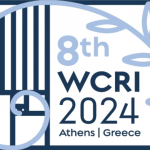
The 8th World Congress on Research Integrity (WCRI) took place in Athens, Greece from 1st-5th June. GigaScience Press are regular attendees of this conference, and this year our organisation was represented by GigaScience Editor-in-Chief Scott Edmunds, Executive Editor Nicole Nogoy, and Data Scientist Chris Armit. A major theme of the conference was the double-edged sword […]
Archiving blogs: Rogue Scholar and lessons from Biome
Scott Edmunds - September 12, 2023
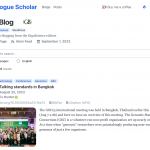
GigaBlog is now archived in Rogue Scholar, a new service that provides what it calls “science blogging on steroids” through including full-text search, long-term archiving, DOIs and metadata for science blogs such as ours.
Addressing the challenges of sharing computational workflows with Yevis. Q&A with Tazro Ohta.
Scott Edmunds - March 6, 2023
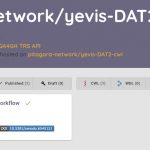
We have an author Q&A and video abstract with Tazro Ohta where he gives some insight into archiving workflows and his new Yevis platform.
Improvements for Man and Machine in Scientific Publishing
Scott Edmunds - October 5, 2022

Frictionless Data improves not just machine readability of scientific articles, but also enables humans to directly interact with the data within the article itself. A new article in GigaByte demonstrates frictionless data can help bring papers to life with interactive figures.
From Frictionless Data to Interactive Visualisation
Scott Edmunds - September 1, 2022
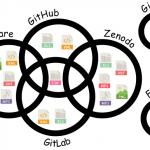
A guest post from our summer data science intern Raniere Silva from Hong Kong City Uiniversity on his work on Frictionless Data and Interactive Visualisation
Open Access Week 2021: GigaScience’s 10 Examples of Open
Scott Edmunds - October 29, 2021
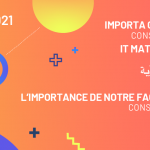
For Open Access Week 2021 we look back over 10 of our favourite GigaScience papers providing examples of barriers we’ve tried to break for more open science.
GigaByte and River Valley Technologies push the boundaries of Executable Research Articles using Stencila and Code Ocean
Scott Edmunds - February 25, 2021
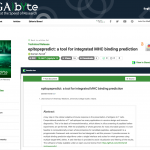
Today GigaByte publishes its first Executable Research Article (ERA), using technology from Stencila and Code Ocean to showcase interactive and executable versions of the figures.
Reproducible Classification. Q&A on ShinyLearner & the CODECHECK certificate, pt. 2
Scott Edmunds - April 8, 2020
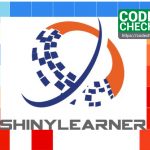
Q&A with Stephen Piccolo talking about ShinyLearner, a benchmarking tool for machine-learning classification algorithms, & how it was tested with CODECHECK
Certified Reproducibility. Q&A on ShinyLearner & the CODECHECK certificate, pt. 1
Scott Edmunds - April 7, 2020
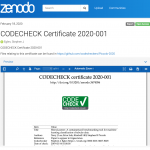
Out today in GigaScience is ShinyLearner, a new tool to make it easier to perform benchmark comparisons of classification algorithms. This tool stands out by making this process super systematic and reproducible, and despite needing to interface with many different libraries and languages it uses software containers (and a CodeOcean demo) so end users don’t […]
GigaBlog meets Gigantum: Guest Post from Tyler Whitehouse, Dean Kleissas and Dav Clark
Nicole Nogoy - June 20, 2019

At GigaScience as our focus is on reproducibility rather than subjective impact, it can be challenging at times to judge this in our papers. Targeting the “bleeding edge” of data-driven research, more and more of our papers utilise technologies, such as Jupyter notebooks, Virtual Machines, and Containers such as Docker. Working these tools in to […]